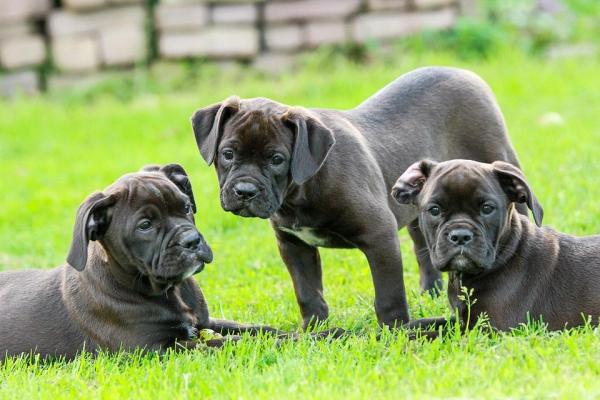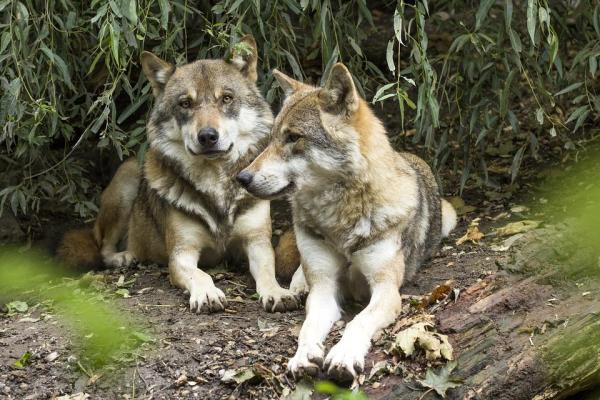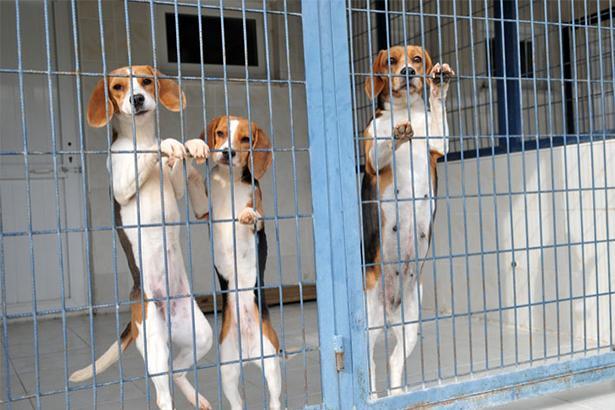Can You Breed Mother and Son Dogs?



See files for Dogs
While it is biologically possible to breed a mother dog with her son, it is a process of dog inbreeding which should be avoided at all costs. Breeding such close relations can cause serious harm to the litter. Although they may appear healthy when they are born, they can develop serious congenital problems later in life. Even if the puppies are otherwise healthy, their genes can be affected which pass on to other generations and cause harm down the line. Unfortunately, many guardians and even some unscrupulous breeders will allow or even encourage intergenerational breeding in dogs.
At AnimalWised, we discuss dog inbreeding by asking can you breed mother and dog sons? We look at the repercussions by seeing inbred dog problems and why this practice should be avoided.
How do do wild dogs breed?
To better understand inbreeding domestic dogs, we can take a look at their wild cousins. The genetic ancestry of dogs is closely linked to that of wolves and we see similar genetic correlations between the two. It is the wild animal closest in comparison to the domestic canine in terms of both behavior and genetic structure.
For this reason, it is helpful to observe whether crossbreeding mom and son wolves is positive or negative. In packs of wolves, males and females of the same family will coexist, but only the alpha males and females will mate (in the absolute majority of cases). The alpha female and alpha male mates are also monogamous and will not change mates unless one of them dies.
Male offspring when reaching adulthood can choose to stay within the family nucleus where they will not reproduce or leave the group. When they leave their family group they will walk long distances and cover territory erratically. On this journey, they may meet a female wolf in heat who cannot mate thanks to the social rank she occupies in her own wolf pack. This female may decide to leave her own group and form her own family with the male.
In the case of wolves, the social structure is very important and it essentially impedes any reproduction among relatives. Without any human interference, there is very little incest in wolf communities. A 1997 study confirms this trend by suggesting that incest avoidance is very helpful in preserving gray wolf ecology[1].

Will a male dog try to mate with their mother?
Dogs have changed a lot since they created an evolutionary distance between themselves and their wolf ancestry. They no longer live in packs of the same species in which they have clearly marked roles and social order. Even pack dogs live with their human caretakers and are rarely given the opportunity to reproduce. This can cause problems if you decide to keep sexually intact dogs together, regardless of their family history.
If you decide to keep a male puppy with his mother, problems will develop. After the weaning period in dogs, the mother will start to reject her puppies. This is an important process since it will allow the son dog to become more independent and fend for themselves. However, they can stay in the same environment (i.e. the family home) without problem until the dog matures.
Once the dog matures sexually, they will be able to mate with a female. When the mother dog is in heat, she will give off pheromones which will attract any males around, including her son. For this reason, a male dog will try to mate with his mother. It won't necessarily happen to all dogs and the mother may be able to stop copulation, but a persistent male dog will likely succeed in mating.
Why inbreeding dogs is a bad idea
One of the main reasons dog inbreeding needs to be avoided is the importance of genetic variability. Two individuals from different families have different genetic codes. This means that these animals may perform the same genetic function, but do so differently. Here is an example to illustrate this point:
- The genetic code of one dog tells its body that it must grow a thicker coat in winter to protect itself from the cold. The genetic code of another dog also tells it to create a denser coat, but does it in a different way. Here, two different genetic paths end up with the same result.
When these two different specimens reproduce, the offspring will have the genetic information to grow denser fur in two different ways. This means that in the event of one of these two modalities is negated by a genetic mutation or is unable to sustain it in a particular ecosystem, it still has the other genetic information to better adapt.
This is a simplification of what is a very complicated process, but the importance of genetic variability means the survival of some species. It is difficult to overestimate how fundamental it is to life on this planet. By mating a song dog with his mother, we reduce the genetic variability and harm future generations.
Moreover, nature knows that genetic variability is important. For this reason, inbreeding dogs can result in diseases, malformations and other health conditions which can harm any potential puppies produced when mating a male dog with his mother. We look at some of these specific problems below.
What inbred dog problems occur when a mother dog mates with her son?
Animals in the same family share most of the same genetic information, when they cross each other, the information is repeated and this makes their DNA poorer. Returning to the example of how animals may get thicker hair in winter, in this case they would have two identical copies. This means the animal will be much less adaptable to whatever life throws at them. You may think since these animals won't need protection in the winter if they are domesticated, but this is only an example. A lack of genetic diversity can affect malformations, allergies, vitamin synthesis, bone growth and much more.
When crossbreeding a mother dog with her son or father with his daughter, we reduce the genetic variability of the offspring. This, generally, makes the individuals weaker and maladjusted. It causes their genetic code to have fewer resources for adaptation and, therefore, they will become impoverished.
The immediate consequence of inbreeding amongst dogs is reduction of their life expectancy. Incestuous breeding can also lead to more pronounced hereditary diseases and an increased susceptibility to many conditions including allergies and cancer. This will lead to a lesser quality of life for the dog as well as greater cost to the owner in terms of maintenance costs.

Why do some dog breeders practice inbreeding?
The diversification of so many different breed types in existence today is due to artificial selection by humans. For thousands of years, specimens have been selected to mingle certain characteristics.
Many of these traits are either physical or in terms of behavior. To do this, there are different types of breeding carried out to ensure these desired breed standards are met. These can lead inbreeding among canine siblings and parents. The types of breeding are:
- Breeding: controlled breeding where the two parents are selected.
- Inbreeding: breeding of animals with direct kinship used to fix certain traits shared by both parents.
- Line-breeding: breeding of animals on the same genetic line, but not of direct kinship (i.e. siblings)
- Out-cross breeding: breeding of two animals from different family groups who do not share genetics.
Professional breeders select individuals for more reasons than simply physical traits. They have to assess visible diseases, quality of life, mental traits, aggressive behaviors and many other factors need to be taken into account.
It must be noted that when an animal has been commercialized to this extent, these considerations are often either not made or neglected. This is because many dogs are bred for their desirable qualities has objects and their health is given the backseat treatment. Teacup dogs are one example of breeders creating a dog which is adorable and physically desirous among pet owners. However, they have notorious health problems which can significantly impair their overall health. Unscrupulous breeders are one of the many reasons adoption should be the decision many new pet owners make to acquire their new canine family member.

Conclusion
In short, you must never crossbreed parent dogs with their offspring. While you may end up with a relatively healthy dog, the chances of having a dog with serious health problems are too great. Many breeders still continue this practice of selling animals with a low quality of life for their own financial gain. This is means they continue mother son breeding in dogs without care for animal welfare.
You should visit the shelters closest to your place of residence. If you do have many dogs and the resources to consider breeding, remember that the health and life of the dogs should be your priority. You need to have the necessary space and understand the cost of pregnant dogs. Inbreeding dogs should be avoided, especially if you have no prior knowledge of all the complicated aspects of successful dog breeding.
This article is purely informative. AnimalWised does not have the authority to prescribe any veterinary treatment or create a diagnosis. We invite you to take your pet to the veterinarian if they are suffering from any condition or pain.
If you want to read similar articles to Can You Breed Mother and Son Dogs?, we recommend you visit our Hereditary diseases category.
1. Smith, D., Meier, T., Geffen, E., Mech, D. L., Burch, J. W., Adams, G. L., & Wayne, R. K. (1997). Is incest common in gray wolf packs? Behavioral Ecology, 8(4), 384–391
https://doi.org/10.1093/beheco/8.4.384









